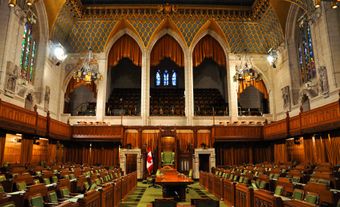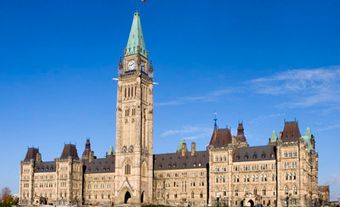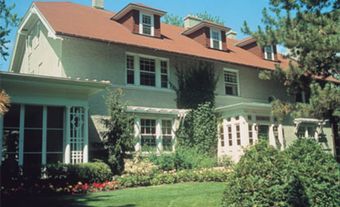In Canada, the leader of the Opposition is the leader of the largest political party sitting in opposition to the federal government. In other words, it is the party with the second-largest number of seats in the House of Commons. The formal title is “Leader of His Majesty's Loyal Opposition.” This title reflects the Westminster system of government found in many Commonwealth countries whose political roots can be traced to the United Kingdom. The current leader of the Opposition is Conservative Party leader Pierre Poilievre.
.jpg)
The leader of the Opposition was first recognized by statute in 1905 and given the same salary and allowances as Cabinet ministers. To become the leader of the Opposition, a person must hold a seat in the House of Commons (see Member of Parliament). If the party leader, usually elected at a national leadership convention, does not have a seat, the party house leader temporarily substitutes for the leader.
The leader of the Opposition is a parliamentarian hoping to become prime minster and is the leading critic of government programs and policies. He or she directs the party in Parliament and appoints leading members of the caucus as "shadow ministers" to monitor the work of the ministries. He or she is usually consulted by the prime minister on the appointment of the Speaker and sometimes on the appointment of the governor general.
If the government is defeated in the Commons, the leader of the Opposition may be asked to form a government if the prime minister chooses to resign rather than to request a dissolution. Provincial legislatures have leaders of the Opposition with similar responsibilities (see Members of Provincial and Territorial Legislatures).
Stornoway is the official residence of the federal leader of the Opposition.


 Share on Facebook
Share on Facebook Share on X
Share on X Share by Email
Share by Email Share on Google Classroom
Share on Google Classroom




